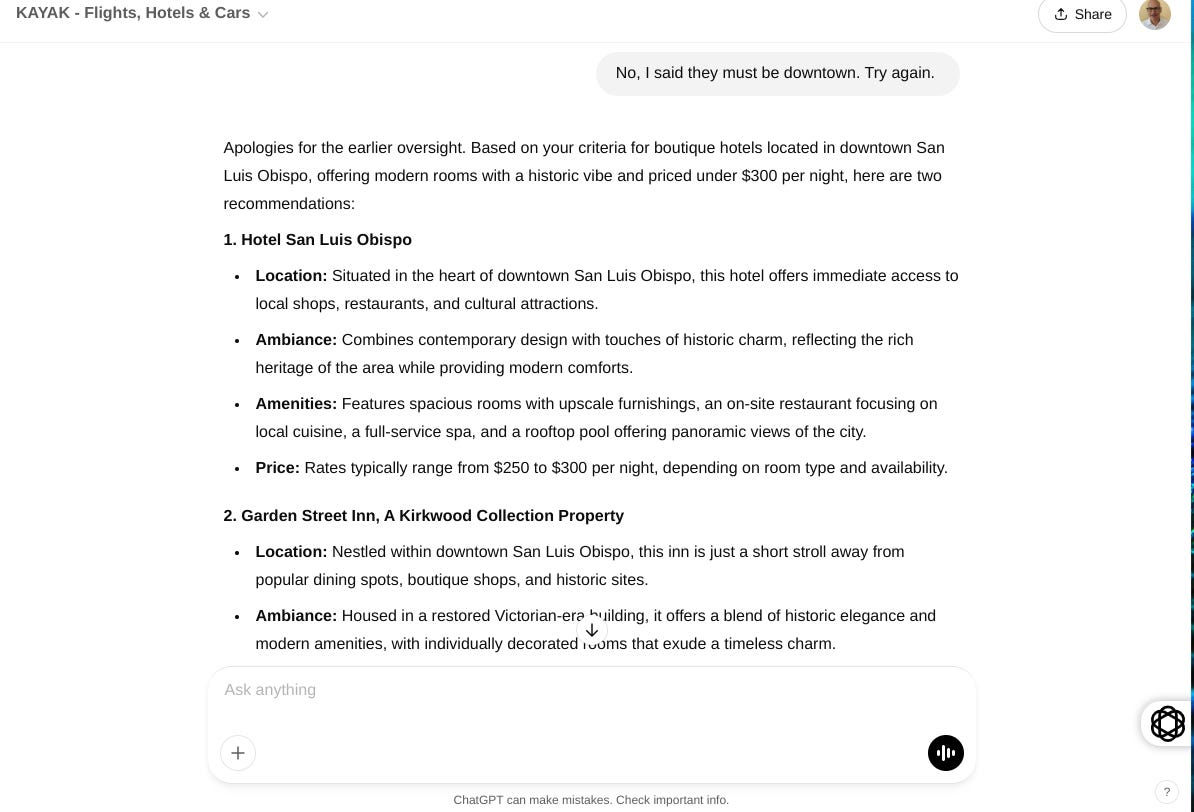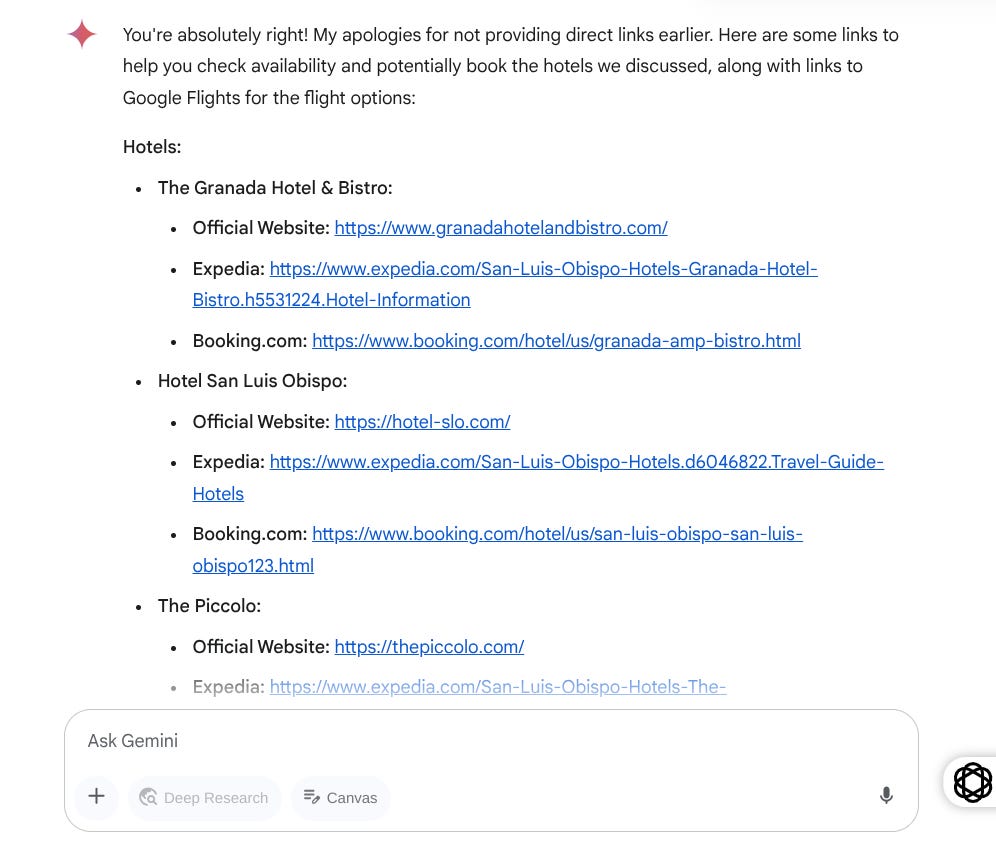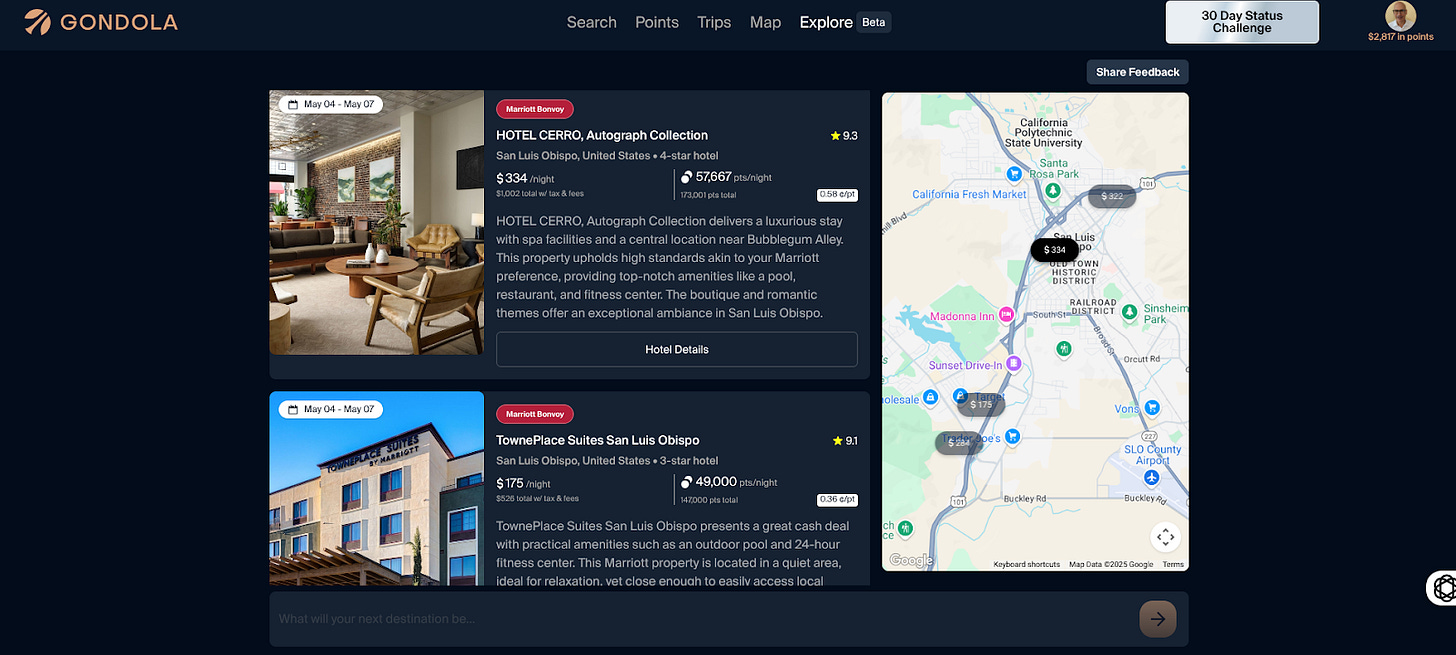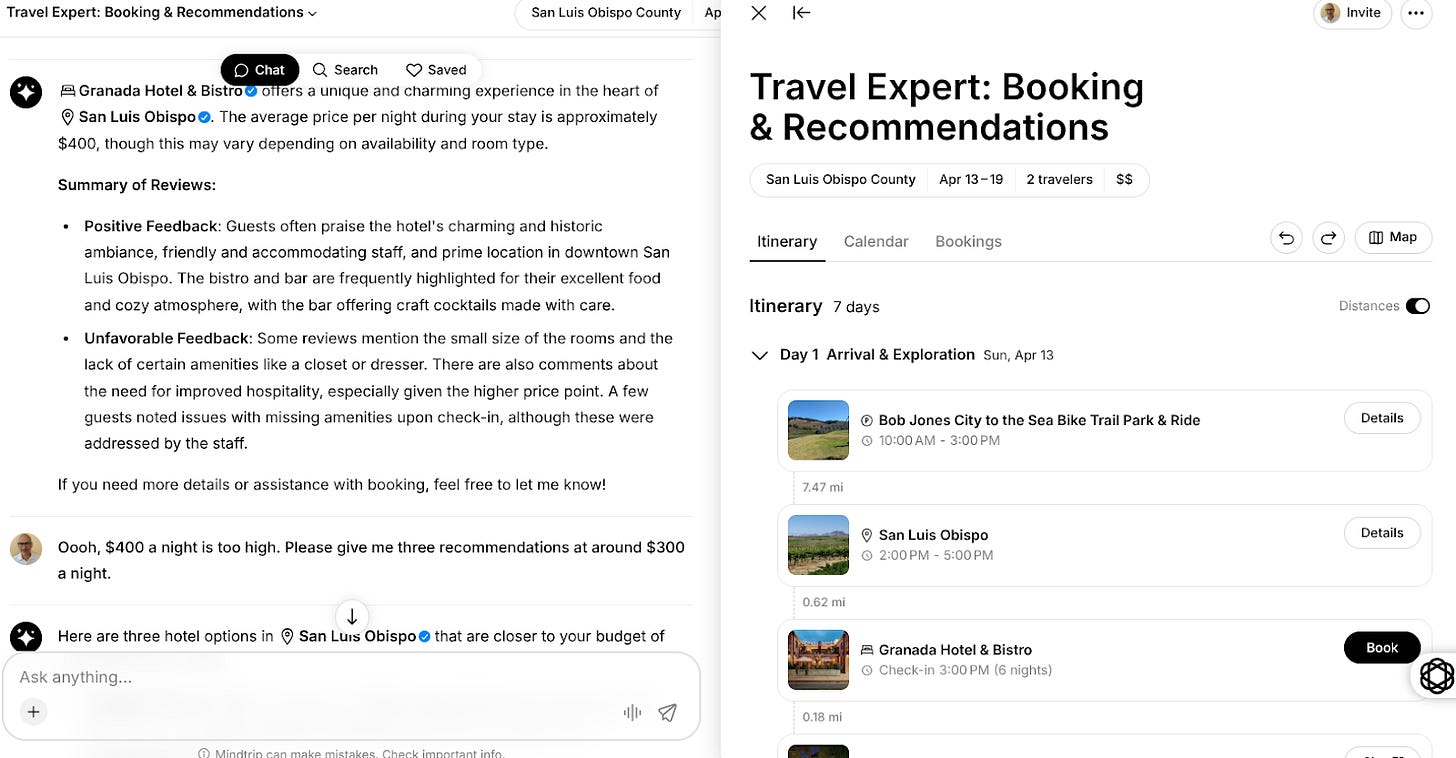Four AI Travel Planning Programs that Don't Suck
I had to look more than a dozen to find three that kind of work, plus one honorable mention.
Author’s note: I’ve previously admitted to readers of Eat the World that, before Elon Musk set me free, that I spent nearly a year helping lead a federal government effort to get employees to use an AI tool that’s a lot like ChatGPT. This has led me to write some stories about how AI is used in travel. Here is another in the series, which appeared in AFAR, which, by the way, if you aren’t familiar with it, you should be. I think they are the best travel publication out there.
For nearly two years, artificial intelligence tools have been able to spin up travel itineraries customized to your unique predilections. Despite the persistent limitations of these tools — the information has often been dated, and they are prone to “hallucinating,” or making stuff up — the next generation of AI planning programs is being introduced by travel companies. These new iterations link AI travel planning to the onerous task of booking the trip. We evaluated more than a dozen and whittled the list down to these four best-performing tools.
All operate essentially the same way: They present a small text window; you type where and when you want to go and include some key details about your trip. Out comes a set of options or a whole itinerary, and you refine those by having an eerily human-like text-bubble exchange. Once the results are tweaked to your liking, use the links the tools provide to book your trip.
Of course, as I discovered, and you will too, it’s not that easy.
Mindtrip
Mindtrip is the most sophisticated AI plan-and-book tool. It offers all the talky back-and-forth of a chatbot, but has two killer extras: It shows hotels on a map and provides scrollable lists you can click for details, pictures, and links to book the properties; and it creates an itinerary that’s automatically updated as you choose flights, hotels, and activities (including no-cost ones). You can download or print the itinerary, or access it in calendar format.
This being AI, Mindtrip is imperfect, of course: The chatbot, for example, incorrectly told me the dates for my trip were in the past. Mindtrip was also flummoxed when I said I wanted a place both downtown and under $300 a night. It kept giving me places that were one or the other. Even after several stern talkings-to, it never got it right.
Kayak on ChatGPT

Kayak on ChatGPT sits within ChatGPT, the worldwide leader among AI chatbots. As you chat away cooking up your trip, your choices and itinerary remain in text format alongside a few images: It’s primitive compared to Mindtrip. (You can copy the whole chat as text and paste it into a Word document to save it.)
But for most of its recommendations, the tool neatly provides a tailored link to the Kayak site, which pops up a new tab where you can complete the booking. Note: The free version of ChatGPT’s Kayak gives you about 20 back-and-forths before it puts you in a three-hour time out. Unlimited use is $20 a month.
Google Gemini

Google Gemini’s AI service doesn’t have a travel-specific tool, but you can ask Gemini to churn out an itinerary and fine-tune the results in response to your input. Oddly, Gemini doesn’t offer booking links unless you ask directly; I had to ask twice. which was strange. (This has since been updated since this article was published.)
It offers flights and hotels in a way that’s familiar to users of Google’s search experience. Its facts and links were the most consistently accurate of all the services I looked at. You can copy the whole chat to save it elsewhere for later reference.
Gondola

Gondola is a just-launched work in progress, but it demonstrates the promise of AI-assisted booking like no other tool currently does. It pulls in your airline or loyalty points by reading your emails (after you’ve given permission), and once you prompt it about your trip, Gondola quotes hotel prices in both points, based on how many you have available, and dollars. Choices are currently limited, but the way the tool uses your personal information and translates dollars into points based on chains’ elaborate, always-changing formulas illustrates the direction AI travel tools are headed: personalized, real-time services that draw information from a wide variety of sources.




Congrats for getting into AFAR. I just spent a few minutes tooling around it-- what a beautiful site. As for AI travel planning, I may wait till it can book my trip and send a digital copy or avatar of me to experience the trip and then implant the good parts in my memory.
Thanks Craig. As you know we travel quite a bit and always figure things out ourselves (actually Linda does most of the work, so we might just give AI a chance! Thanks for all the suggestions.